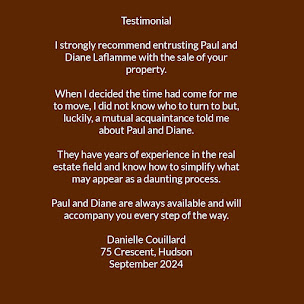Every month, Quebec judges and regulatory agencies issue dozens of rulings that, without making headlines, set the ground rules for business in Quebec.
Here are a few of the offbeat and/or consequential rulings rendered in recent weeks.
A bat problem isn’t something you can omit telling a potential buyer about when selling your home, two former owners of a Montérégie property learned the hard way.
They were ordered to pay a total of $37,126, plus interest, to a young couple that purchased the house for $91,500 in 2009.
The buyers didn’t have the property inspected professionally or even take a look in the attic (whose trap door was screwed shut), but testified the owner actually mentioned to them during a visit not to worry about bats, because they came from a church nearby.
In fact, exterminators had been to the house twice before attempting to rid the house of bats, Quebec Court Judge Pierre Bachand noted in his judgment.
The buyers had their first encounter within days of concluding the purchase agreement. A bat was flying in the house at 3 a.m., terrifying the woman, whose husband had gone to work in Alberta. She went to her parents’ home and didn’t return until her husband came back and removed the bat.
Two days later, there were two bats in the kitchen, and the couple left again, this time checking into a motel. An exterminator was summoned the next day. He told them a colony of 400 to 500 bats was established in the attic and, since they couldn’t be killed, they’d have to be caught and moved.
Because of its size, he estimated the colony already had been there four or five years. And their presence meant all the insulation would have to be removed, since it now contained guano. As it turned out, it also contained asbestos, further complicating removal.
Buyer and seller worked together to clear the attic, filling 20 bags, but relations soured after that and the matter ended up in court.
The seller said he’d bought the property from his aunt in 2008 for $75,000. He said he hadn’t inspected the attic either, because the aunt told him there was nothing to see.
The aunt told the court she lived in the house one year, renting it after, and her only encounter with a bat was when one grazed her face in the night, and she killed it. But she admitted she subsequently paid for an attic fumigation at the request of a tenant.
Judge Bachand said there was no doubt the bats were a hidden vice, because the size of the colony meant it had been there a while and anyone living there during the summer months would have been aware of it because of the noise and smell.
The fact the trap door was screwed shut suggested someone knew about the problem, as did the open upstairs windows when the couple made their second pre-purchase visit.
“An owner doesn’t have to declare the fortuitous presence of one bat in a home. It’s a different story when you had to combat the presence of bats with an exterminator on two occasions and there were 100 bats in the colony the second time,” Judge Bachand said.
“Who wouldn’t check the attic if they’d been advised more than 100 bats previously resided there and they had the habit of returning to the same spot year after year? Nobody. If the (previous) owner had checked, he’d have realized it was infested when he bought.”
Judge Bachand ordered the seller to pay the buyers a total of $37,126, plus interest, to cover the cost of repairing and decontaminating the property, lost salary, inconvenience and damages, and the seller’s aunt to pay him $21,805 for not disclosing the problem to him.
The Quebec Order of Chemists filed suit against an award-winning Montreal university professor for “letting himself be described as a biochemist” in articles and news stories on several websites while not registered as such in the province, but Justice of the Peace Pierre Fortin didn’t buy it and acquitted him of all five charges in Quebec Court.
The professional order claimed the prof had “usurped” a title “reserved solely” for its members in good standing.
“While we do take into consideration that these articles were not written by you, the quantity of these occurrences leads us to believe it may be more than the indiscretion and carelessness of a journalist,” the order told the professor in a letter entered in evidence.
Fortin disagreed. He said the articles were written by sources outside the professor’s control and there was no evidence he deliberately used the designation, or knew he’d be so described by someone else and consented to it.
“One presumes a professor and researcher of his calibre has better things to do than surf the Internet and Google himself every morning to ensure the articles that mention him don’t give him a title he doesn’t have,” Fortin wrote, adding he wouldn’t convict someone for the actions of others he couldn’t influence or control.
Conviction would have triggered a minimal fine of $1,500 per charge.
By Paul Delean, The Gazette
pdelean@montrealgazette.com
Subscribe to:
Post Comments (Atom)









No comments:
Post a Comment